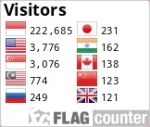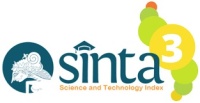Pertanggungjawaban Pidana Bank Sebagai Pengguna Artificial Intelligence
DOI:
https://doi.org/10.26623/julr.v7i2.9026Keywords:
Artificial Intelligence, Banks, Corporation, Bank, KorporasiAbstract
The purpose of the research is to study and analyze the issue of the use of artificial intelligence (AI) by banks that results in losses to customers. To respond to the issue, this paper argues that banks as AI users should be held criminally liable despite the lack of mens rea in banks as corporations which are legal entities. For this reason, this paper uses the identification theory as an analytical tool for bank criminal liability. The issue is compiled on the results of normative legal research with a statute approach and conceptual approach. The results of the study show that based on the identification theory, the bank as an AI user can be held criminally liable with the public prosecutor must identify the person who committed the criminal act (actus reus) is the management as the controlling personnel (directing mind or controlling mind). The location of the AI mens rea is in the approval of the corporate controller to use AI, meaning that the approval is interpreted as the inner attitude of the controller to accept the risks arising from the use of AI.
Tujuan dari penelitian untuk menganalisis isu penggunaan artificial intelligence (AI) oleh bank yang berakibat pada kerugian bagi nasabah. Untuk menanggapi isu tersebut, tulisan ini berpendapat bahwa bank sebagai pengguna AI patut dimintai pertanggungjawaban pidana meskipun tidak mempunyai mens rea pada bank sebagai korporasi yang merupakan badan hukum. Untuk itu, tulisan ini menggunakan teori identifikasi sebagai pisau analisis terhadap pertanggungjawaban pidana bank. Isu tersebut disusun atas hasil penelitian hukum normatif dengan pendekatan undang-undang (statute approach) dan pendekatan konseptual (conceptual approach). Hasil penelitian menunjukan, berdasarkan teori identifikasi, bank sebagai pengguna AI dapat dimintai pertanggungjawaban pidana dengan penuntut umum harus mengidentifikasi yang melakuan perbuatan pidana (actus reus) adalah pengurus sebagai personil pengendali (directing mind atau controlling mind). Letak mens rea AI ada pada persetujuan pengendali korporasi menggunakan AI, artinya sikao persetujuan tersebit dimaknai sebagai sikap batin pengali untuk menerima resiko yang timbul akibat penggunaai AI.
References
Akbar, Muhammad Fatahillah. “Penerapan Pertanggungjawaban Pidana Korporasi Dalam Berbagai Putusan Pengadilan.” Jurnal Hukum & Pembangunan 51, no. 3 (September 25, 2021): 803–23. https://doi.org/10.21143/jhp.vol51.no3.3272.
Ayunda, Rahmi, and Rusdianto Rusdianto. “Perlindungan Data Nasabah Terkait Pemanfaatan Artificial Intelligence Dalam Aktifitas Perbankan Di Indonesia.” Jurnal Komunikasi Hukum (JKH) 7, no. 2 (September 23, 2021): 663–77. https://doi.org/10.23887/JKH.V7I2.37995.
Bahreisy, Budi. “Pertanggungjawaban Pidana Bagi Pelaku Penggunaan Frekuensi Radio Tanpa Izin Berdasarkan Undang-Undang Tentang Telekomunikasi (Criminal Of Perpetrators Of Use Of Illegal Radio Frequencies Under The Act Of Telecommunication).” Jurnal Penelitian Hukum De Jure 16, no. 3 (February 9, 2017): 265–76. https://doi.org/10.30641/DEJURE.2016.V16.265-276.
Disemadi, Sutra Hari. “Urgensi Regulasi Khusus Dan Pemanfaatan Artificial Intelligence Dalam Mewujudkan Perlindungan Data Pribadi Di Indonesia.” Jurnal Wawasan Yuridika 5, no. 2 (September 28, 2021): 177–99. https://doi.org/10.25072/jwy.v5i2.460.
“Garner’s Dictionary of Legal Usage - Bryan A. Garner - Google Books.” Accessed May 23, 2024. https://books.google.co.id/books?hl=en&lr=&id=O1m1bI5vCooC&oi=fnd&pg=PP2&dq=B+A+Garner,+Black%E2%80%99s+Law+Dictionary&ots=IJIqXp78WK&sig=uVi2KBPfBIRWtzuZmno-V54EbiY&redir_esc=y#v=onepage&q&f=false.
Gobert, James. Squaring the Circle: The Relationship between Individual and Organizational Fault: James Gobert. Routledge, 2011.
Gongol, Tomáš. “The Preliminary Ruling Decision in the Case of Google vs. Louis Vuitton Concerning the AdWord Service and Its Impact on the Community Law.” Amfiteatru Economic Journal 15, no. 33 (2013): 246–60. https://www.econstor.eu/handle/10419/168787.
Halim, Chanda, and Hendri Prasetyo. “Penerapan Artificial Intelligence Dalam Computer Aided Instructure(CAI).” Jurnal Sistem Cerdas 1, no. 1 (July 25, 2018): 50–57. https://doi.org/10.37396/JSC.V1I1.6.
Hans Michael, and Limantara Prastika Cynthia. “Aspek Hak Cipta Atas Karya Hasil Artificial Intelligence 2023,” October 19, 2023.
Haris, Muhammad Tan Abdul Rahman, and Tantimin Tantimin. “Analisis Pertanggungjawaban Hukum Pidana Terhadap Pemanfaatan Artificial Intelligence Di Indonesia.” Jurnal Komunikasi Hukum (JKH) 8, no. 1 (February 1, 2022): 307–16. https://doi.org/10.23887/JKH.V8I1.44408.
Kurniawan, Itok Dwi. “Analisis Terhadap Artificial Intelligence Sebagai Subjek Hukum Pidana.” Mutiara: Jurnal Ilmiah Multidisiplin Indonesia 1, no. 1 (July 18, 2023): 35–44. https://doi.org/10.61404/JIMI.V1I1.4.
Maglie, Cristina De. Models Of Corporate Criminal Liability In Comparative Law, 2005.
Mahesa, Jati Kusuma. Hukum Perlindungan Nasabah Bank. Bandung, 2012.
Manajemen Risiko Berbasis, Penerapan, Mutiara Dewi Permatasari, and Nisa Aurelya Salsabyla. “Application of Artificial Intelligence-Based Risk Management in Banking.” JRAK: Jurnal Riset Akuntansi Dan Komputerisasi Akuntansi 12, no. 2 (September 9, 2021): 01–09. https://doi.org/10.33558/JRAK.V12I2.2886.
Marzuki, Mahmud Peter. Penelitian Hukum. Jakarta, 2005.
Muhammad, Zaenuddin. “Sejarah Artificial Intelligence Dan Penerapannya Dalam Dunia Nyata .” Kompas.com, May 3, 2023. https://www.kompas.com/tren/read/2023/05/03/140000265/sejarah- artificial-intelligence-dan- penerapannya-dalam-dunia- nyata?page=all.
Pengadilan Tinggi Banjarmasin. Putusan No. 04/PID.SUS/2011/PT. BJM.
“Pengaruh E-Service Quality, E-Trust Dan Artificial Intelligence Terhadap Nasabah Experience Pengguna Aplikasi Brimo | Contemporary Studies in Economic, Finance and Banking.” Accessed June 17, 2024. https://csefb.ub.ac.id/index.php/csefb/article/view/129.
Pieth, Mark, and Radha Ivory. “Emergence and Convergence: Corporate Criminal Liability Principles in Overview.” Ius Gentium 9 (2011): 3–60. https://doi.org/10.1007/978-94-007-0674-3_1.
Pujiyono, and Sugeng Riyanta. “Corporate Criminal Liability in the Collapse of Bank Century in Indonesia.” Humanities and Social Sciences Letters 8, no. 1 (2020): 1–11. https://ideas.repec.org/a/pkp/hassle/v8y2020i1p1-11id835.html.
Setiyono. Teori-Teori Dan Alur Pikir Penerapan Pertanggungjawaban Pidana Korporasi, 2013.
Sjahdeini, Remy Sutan. Pertanggungjawaban Pidana Korporasi. Jakarta: Gratiti Pers, 2006.
Sudikno Mertokusumo. Penemuan Hukum Sebuah Pengantar. Yogyakarta: Liberty, 2001.
Sulistyowati, Sri Yayuk Rahayu, and Darun Chifni Naja. “Penerapan Artificial Intelligence Sebagai Inovasi Di Era Disrupsi Dalam Mengurangi Resiko Lembaga Keuangan Mikro Syariah.” Wadiah: Jurnal Perbankan Syariah 7, no. 2 (2023): 117–42. https://doi.org/ttps://doi.org/10.30762/wadiah. v7i2.329.
Undang-Undang Dasar Negara Republik Indonesia Tahun 1945.
Undang-Undang Nomor 10 Tahun 1998 tentang Perubahan atas Undang-Undang Nomor 7 Tahun 1992 tentang Perbankan.
Downloads
Additional Files
Published
Issue
Section
License
The journal holds the copyright for each article published with work licensed simultaneously under a Creative Commons Attribution 4.0 International License, which allows others to share the work with an acknowledgment of the authorship and early publication of the work in this journal.










